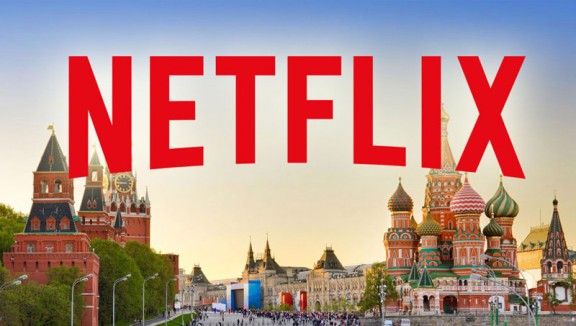Registry for online cinemas: to protect the domestic OTT market

The Russian market for OTT video services is actively developing: attendance, quality of services, and video content are growing. Online cinemas are already beginning to publish premieres simultaneously with offline premieres, which greatly aligns the possibilities of OTT and traditional cinema halls.
In January of this year, NetFlix, the largest American online video player, entered the market of our country. The emergence of such a "dinosaur" immediately caused concern of Russian companies, because having the US market behind them, ties with leading Hollywood studios that can exclusively deliver NetFlix premieres, it is very easy to become a monopolist, removing modest Ivi.ru, Amediateku, Tvigle, Now from its road. .ru and so on. In the meantime, NetFlix probes the ground by launching only the beta version in Russia and limiting its repertoire. Obviously, domestic players are unlikely to be able to keep the market if NetFlix employs 100% of its capacity.
In February, the head of Roskomnadzor, Alexander Zharov, told reporters that it was necessary to regulate the sphere in which such large transnational players as Netflix work.

')
Discussions about the ordering of a large number of cinemas in the global network are conducted throughout the year , but now we can say with confidence that this project is entering the home straight.
According to yesterday’s article in Gazeta.ru , Roskomnadzor supported the idea of the Media Communication Union (ISS) on regulating online cinemas. This union represents the interests of operators, owners and broadcasters of Russia. These proposals formed the basis of the bill, which will be discussed at the RIW-2016 site. It is unclear when it will make the State Duma.
I managed to read a lot of materials on this topic and as a result I had certain ideas:
Firstly, the document clearly establishes who is regulated and who is not. The concept of “organizer of audiovisual service” is introduced. These are the online resources that make it possible to watch content for a fee or with the obligatory viewing of commercials. The audience of such online cinemas is 100 thousand for the entire country and 20 thousand for the subjects.
It is very important to note that neither the social networks, nor the video hosting sites (YouTube, RuTube, etc.), nor the search engines, nor the sites with user videos will ever fall under the regulation of the bill. The same applies to mobile applications AppStore, Google Play. In general, you should not be afraid that everything will be banned and we will not be able to watch our favorite videos or memes.
But as we know, on “YouTube” and you can watch movies for a fee, how will the state control this? According to the position of Roskomnadzor, services, where exactly user content is the majority, will not fall under the action of future law.
The market for OTT services is no less than traditional mass media; its regulation has a rational basis.
Initial control measures are replacing the chaotic state of affairs that is at the moment. Moreover, if there are already laws on regulating social media, e-mail or aggregators, then this bill can be the first step to develop uniform rules of the game for all market participants and the state, create procedures for the adequate settlement of controversial issues, etc.
Foreign participation in online cinemas will limit, as in the media, 20% of the capital. This is quite a world practice. In the United States, the share of foreigners in such resources should not exceed even 25% of the shares; in France, non-EU companies are prohibited from owning more than 20% of the capital, such a percentage limit in Australia and Canada.
Even if the limit of shares is exceeded, investors from other countries will be provided with a transition period, there will be no “1 day sale”. For a specified period of time, the excess shares will be offered to be sold to domestic companies.
The bill can hardly be called whipped up, the work lasted more than a year.
All major players in the media and communications industry, such as telecom operators, rights holders and media holdings, participated in discussions about the draft regulatory act.
A new round of public comment will take place soon, in November, at the Russian Internet Week 2016. The Ministry of Communications will also give its assessment of the project.
Source: https://habr.com/ru/post/356076/
All Articles